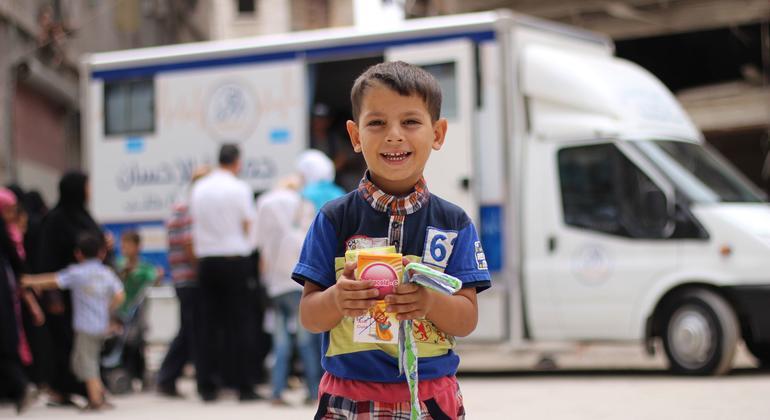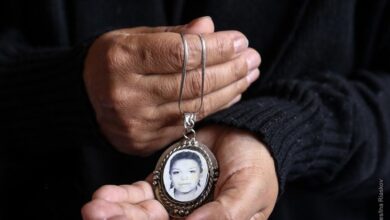Syria: WHO regional director calls for more investment in health sector

Lives are at risk and “the cost of inaction is simply too high,” Dr. Hanan Balkhy, WHO Regional Director for the Eastern Mediterranean, said in statement on Saturday after concluding a five-day visit to Syria.
She expressed deep concern about the complexities and challenges facing people and humanitarian operations on the ground.
“The number of people needing help is staggering and serious vulnerabilities remain in many parts of the country,” she said.
“Compounding this already dire situation, rising political tensions in the region threaten to escalate further in Syria.”
Solve many challenges
The health sector in Syria is affected by a lack of resources, but also by a rapidly deteriorating socio-economic situation due to insecurity, climate change, environmental risks, displacement, and poverty. and ongoing access to adequate food.
In discussions with officials, Dr. Balkhy emphasized the importance of strengthening multi-sectoral coordination to address these challenges.
She said chronic diseases account for nearly 75% of all deaths in the country. The rising rate of malnutrition in children under 5 years old and mothers due to poverty is also extremely alarming.
Malnourished children tripled
She said the global rate of acute malnutrition in children under 5 years old has tripled in the past four years. At the same time, the number of stunted children in five of the 14 provinces has increased, with some areas experiencing catastrophic levels.
Syria also remains one of the largest migration crises in the world. More than 7.2 million people are internally displaced.
She pointed to the situation in Aleppo in the north, where life is extremely difficult due to prolonged conflict and the deadly earthquake that struck the region and neighboring Türkiye in February 2023.
“The lack of electricity has led to innovative but unsafe approaches to heating and cooking, increasing the risk of fires and burns in the home, especially for children,” she said.

A family sought refuge at a school in Atarib, west of Aleppo, Syria, after a devastating earthquake struck the area (file).
Health system ‘extremely fragile’
She noted that across Syria, living conditions are overcrowded and access to clean water and proper sanitation is limited, and cholera, severe acute respiratory infections, measles, lice and scabies have frequently reported over the past two years.
“Against this grim backdrop, Syria’s health system remains extremely fragile,” she said. Today, just over 60% of both hospitals and primary health care centers are fully operational and there is a severe shortage of essential drugs and medical equipment.
“What is most worrying is the fact that almost half of the health workforce, which forms the backbone of any health system, has left the country,” she added.
Enter Al-Hol camp
Furthermore, despite efforts by WHO and partners to restore and restore health services, access to health care remains limited.
She is extremely worried about the situation at the notorious Al-Hol refugee camp, located in the northwest, where families of former ISIL fighters have been detained for years.
WHO is one of the main health service providers in Al-Hol, where both the need and the public health risks are great. As of May 9, camp management revoked WHO access after funding shortfalls forced the agency to suspend medical referrals.
“Our unrestricted access to those in the camps must be restored consistent with humanitarian principles to ensure we fulfill our public health mandate,” she said.
Lack of capital, increased commitment
Dr. Balkhy reported that during her time in Syria, “the decline in humanitarian funding to Syria was a major and worrying concern.” Negotiations with donors in Damascus revealed that while they are aware of the scale of the gaps and needs, they are constrained by competing global and regional priorities. .
She emphasized WHO’s commitment to supporting the Syrian people, who remain resilient despite more than a decade of war and complex crises.
She vowed to advocate for more international support and increased WHO technical expertise to tackle these complex challenges, because “too many lives are at stake and the cost of not action is too high.”




